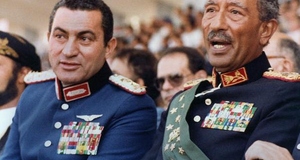A "Born Leader:" The Fallacy of Identifying Leadership as an Innate Characteristic
By
2015, Vol. 7 No. 12 | pg. 1/1
IN THIS ARTICLE
KEYWORDS
Gazing up at rulers past and present, it is easy to attribute success to an innate and ineffable quality of greatness. We are led to believe from countless tales of heroism that with just a dash of lucky circumstance some individuals are simply better at leading than others. A prevalent conception of leaders that still exists today is one where personal qualities that are ‘naturally endowed’ are core to any definition of leadership (Galton, 1869; Zaccaro, 2007). However, it would be a sorry reality to assume that leadership is limited to an intrinsic ‘great man’ hypothesis (Hoffman, Woehr, Maldagen-Youngjohn, & Lyons, 2011). Putting aside gender parity concerns, the implication that all those in positions of power owe it primarily to an internal characteristic alone is worrisome. As Daniel Kahneman’s book ‘Thinking, Fast and Slow’ encapsulates, there are a plethora of biases and mental traps that all individuals face, rendering pure subjective and innate depictions unreliable. Further, I am sure that the many companies focused on leadership development would be disheartened to realise that there was nothing more to leadership than winning the genetic lottery. As the work of such organisations shows, as well as a growing body of academic research, leaders require an element of expert skill and knowledge to support their label. The exact nature of this expertise in the realm of leadership remains ambiguous, partly because of the multidimensional nature of leadership itself. An overview of existing literature is provided here that outlines different skills required for leadership expertise. Ultimately, I consider whether it is requisite, or even possible, to be an expert leader.I argue that the existence of consistently practiced sub-skills of leadership renders the conception of leadership as purely biologically ordained a logical fallacy. While personality traits may influence the capacity of individuals to adopt leadership skills, it is not the trait alone that defines a leader. Further, leadership expertise is arguably distinctly identifiable from both general expertise (for instance, having greater general knowledge than others) and other specific expert skills (for instance, surgical knowledge). I present three key characteristics of leadership that allow it to be considered an area of expertise itself: (a) performance, in any circumstance, that is reliably superior to that of the leader’s peers, (b) a reliable application of actions that are aimed at accomplishing generally endorsed goals for the sake of others within the circumstance, and (c) that performance is attributable to the production of effective outcomes, supported by those being led. Concepts raised by Kahneman (2011) are employed to deepen an understanding of these characteristics. It must be acknowledged that expert leadership is complex to assess, given the difficulty of attempting to compare leadership performance across sectors. Further, the quality of leadership within itself is a highly debated subject. For the purpose of this essay, leadership can simply be considered as consistently fulfilling the three aforementioned characteristics. Additionally, to provide an easily identifiable representative figure to ease the cognitive load of complex mentalizing, leaders can be conceptualised here as political leaders and political decision makers, as prototypical exemplars of leadership within our society. Before we can consider whether leadership is an expert skill, a short consideration of expertise in its own right must be conducted. This provides context as to how leadership may be developed in a range of disparate circumstances. A clear demarcation of expertise as its own idea is how it differs from novice status. Going beyond a simple understanding of experts simply ‘knowing more’ than novices, it is important to reflect in what way experts either possess this greater knowledge, or the superior way in which they implement it (Lord & Hall, 1992). One explanation is that while experts and novices may have similar understandings of the general structure of concepts, experts may simply have more concepts, or more specific concepts, to accommodate a wider number of details into their processing (Murphy & Wright, 1984). Further, several studies in expertise maintain that novices and experts differ not only in their access to knowledge or concepts, but additionally in the way that they organize and represent knowledge (Ericsson et al., 2006). For example, a study by Gitomer (1988) found that expert technicians were more likely than novices to solve problems holistically. This preferences an ‘outside view’, suggesting experts can factor in external factors and statistics to gain reasonable baseline predictions far more readily than novices (Kahneman, 2001, p. 249). Novices, on the other hand, typically search for ‘short cuts’ according to the ‘law of least effort’ (Kahneman, 2011, p.35). This law claims that people gravitate towards the least demanding course of action, implying that novices may simply preference methods that are ultimately less effective than experts. It would therefore appear that experts might generally adopt a wider conception in problem solving to produce more effective outcomes than novices. Further, while problem solving is an activity that requires ‘System 2’ processing (i.e. associated with ‘effortful mental activities’), experts may be more equipped to deal with the cognitive strain (Kahneman, 2011, p.12). How does one then breach the gap from novice to expert? Arguably the transition process is predicated on the exertion of time and effort. The exact quantity of each may differ dependent on individual circumstance (including the influence of personality traits), but a degree of practice must be involved. In other words, if expertise is to be considered a ‘perfect’ state, practice indeed makes perfect. Theoretical accounts proposed by Rine and Ashby (1998) and Ashby and O’Brien (2005) provide a useful example of the need for practice. They argued that experts seem to have an ability to access implicit rule sets that allow for difficult, nonlinear judgements and output. These rule sets are procedural, feedback-dependent, and developed through a trial-and-error learning process. Likewise, the role of learning is essential to experts developing a recognition system to apply to new situations and decipher appropriate action from experience (Kahneman, 2011, p.12). The development of expert skill, as guided by rule sets gained through experience, demonstrates the importance of practice and learning in the transition from novice to expert (Hambrick, Oswald, Altmann, Meinz, Gobet, & Campitelli, 2014). With a general understanding of expertise as distinct from novices as a result of practise, we must now explore to what extent this general conception can be applied to leadership. More particularly, what separates leadership expertise from expertise in other domains? Concert pianists and world-class surfers are surely considered leaders in their respective fields, so do we construe them as leadership experts? The distinction of leadership expertise must be analysed according to the three characteristics of leadership already outlined: performance, application, and outcome. Let us consider each criterion in greater depth, including how each may be tested, to highlight how the expertise of leaders, while applicable across a range of disciplines, is distinct from general expertise and other specific expert skills. PerformanceA clear mark of expert performance is a reliable demonstration of superior performance. Following studies of other specific skills, such as baseball pitching (Kind et al., 1969) and ballet (Miller et al., 1984), much of the superiority in performance is accounted for by intense training that exposes the individuals’ minds to specific stimulation that is above the normal circumstances of everyday life. Factoring in longitudinal consistency weakens the variance sometimes caused by individual difference, and ensures that performance is judged separate to basic domain-specific capacities (Regnier et al. 1994). Training over time overcomes the bias of ‘base-rate neglect’, forcing individuals to consider multiple performances (creating a reliable base rate) in their judgement, resulting in a more accurate overall interpretation of the performance. In the case of political leadership, this could be achieved by examining performance across multiple terms in office, or success on multiple legislation adoptions. While this field is quite dependent on popular opinion (arguably not always an accurate reflection of true skill), we can assume that representing the electorates’ policy priorities, and taking consistent action on this in the elected position, would be acting as an effective leader. Superior performance in leadership expertise requires consistent results for base-line consideration, and leadership sub-skill testing to measure the factors that create a holistic deliberation of leadership performance more widely. ApplicationTransforming superior performance levels into action is considered the next step towards leadership expertise. Considering the ‘affect heuristic’ is beneficial in this regard. While logic and reason are essential to leadership performance, the interpretation of action by the populace under this leadership is often subject to emotion over intuitive judgement. For instance, the 2000 Gallup poll on climate change conducted in the United States demonstrates how public risk perception, an emotional appraisal, can be far more indicative in opinion formation than judging the statistics of global warming (Leiserowitz, 2006). Our preference for cognitive ease is indicative of this: the affect heuristic provides a simplified version of the world that is ‘tidier’ than the complex considerations of ‘System 2’, so we preference the easy emotional reactions of ‘System 1’ (Kahneman, 2011, p. 140). Leaders must realise the laziness of the general public when constructing opinions and goals, so that they may can respond to their needs and endorse them. A leaders’ application of action must be consistent with the goals of those they are acting for. Factoring in the typical affect-orientated perception of humans, and acting as the objective, and sometimes framing, oversight in action consideration seems an integral factor to leadership expertise. OutcomesThe ability to process the feedback received in the application phase is essential to producing effective outcomes. As Ericsson and Lehmann (1996) purport, it is the availability of rapid feedback that is the central factor for improving decision accuracy. Leaders must base their decisions in extensive contextual knowledge to ensure decision accuracy and avoid ‘outcome bias’ (Kahneman, 2001, p.203). Contextual consideration is appropriate here to perceive where past decisions have gone array, even while they may have seemed prudent in foresight. De Vries, Roe and Taillieu (2002) equate this to a moderation skill, where the role of the leader is to provide background clarity and guidance to, for instance, employees. To conclude, the consistency of practiced leadership sub-skills trumps the assumption of leadership as an innate quality. The identification of specific sub-skills, such as planning, holistic problem solving, and contextual consideration, separates leadership expertise from general expertise. Further, the combination of performance, application and outcome that requires integrated perception and consistent effectiveness differentiates this expertise from other specific expert skills. These three key characteristics of leadership, analysed using Kahneman’s concepts of judgement and decision-making, act as a beneficial conceptual framework that reveals the central role of human factors in developing leadership expertise. After all, while biology may not be the ultimate deciding factor in leadership expertise, it cannot be denied that our leaders are simply human. ReferencesAshby, F. G., & O'Brien, J. B. (2005). Category learning and multiple memory systems.Trends in cognitive sciences,9(2), 83-89. de Vries, R. E., Roe, R. A., & Taillieu, T. C. (2002). Need for leadership as a moderator of the relationships between leadership and individual outcomes.The Leadership Quarterly,13(2), 121-137. Ericsson, K. A., & Lehmann, A. C. (1996). Expert and exceptional performance: Evidence of maximal adaptation to task constraints.Annual review of psychology,47(1), 273-305. Ericsson, K. A., Charness, N., Feltovich, P. J., & Hoffman, R. R. (Eds.). (2006).The Cambridge handbook of expertise and expert performance. Cambridge University Press. Galton, F. (1869).Hereditary genius. Macmillan and Company. Gitomer, D. H. (1988). Individual differences in technical troubleshooting.Human Performance,1(2), 111-131. Hoffman, B. J., Woehr, D. J., Maldagen‐Youngjohn, R., & Lyons, B. D. (2011). Great man or great myth? A quantitative review of the relationship between individual differences and leader effectiveness.Journal of Occupational and Organizational Psychology,84(2), 347-381. Kahneman, D. (2011).Thinking, fast and slow. Macmillan. Leiserowitz, A. (2006). Climate change risk perception and policy preferences: The role of affect, imagery, and values.Climatic change,77(1-2), 45-72. Lord, R. G., & Hall, R. J. (1992). Contemporary views of leadership and individual differences.The Leadership Quarterly,3(2), 137-157. Murphy, G. L., & Wright, J. C. (1984). Changes in conceptual structure with expertise: Differences between real-world experts and novices.Journal of Experimental Psychology: Learning, Memory, and Cognition,10(1), 144. Rine, J., & Ashby, M. (1998).U.S. Patent No. 5,777,888. Washington, DC: U.S. Patent and Trademark Office. Zaccaro, S. J. (2007). Trait-based perspectives of leadership.American Psychologist,62(1), 6. Suggested Reading from Inquiries Journal
Inquiries Journal provides undergraduate and graduate students around the world a platform for the wide dissemination of academic work over a range of core disciplines. Representing the work of students from hundreds of institutions around the globe, Inquiries Journal's large database of academic articles is completely free. Learn more | Blog | Submit Latest in Psychology |


















